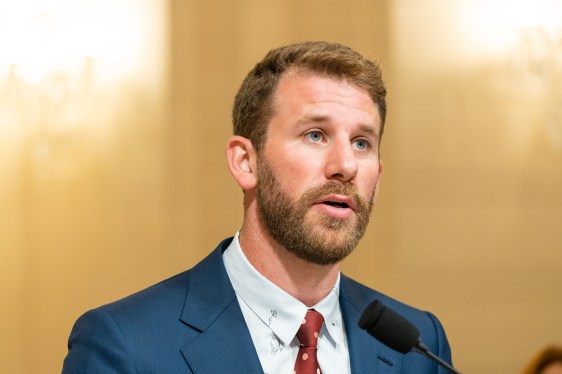Building Trust in Crypto with Jonathan Levin of Chainalysis
In the rapidly evolving world of cryptocurrency and blockchain technology, building trust is a crucial step towards widespread adoption. With the recent news of U.S. Securities and Exchange Commission chair Gary Gensler’s potential resignation and President-elect Donald Trump’s plans to oust him, the crypto industry is bracing for significant changes. On this episode of Equity, Rebecca Bellan sits down with Jonathan Levin, co-founder and CSO of blockchain analysis firm Chainalysis, to discuss the imminent shift in the regulatory landscape, trends in crypto crime, and how to build trust in crypto and blockchain.
The Changing Regulatory Landscape
As the news of Gensler’s potential resignation breaks, the crypto community is abuzz with speculation about what this means for the industry. Trump’s plans to oust Gensler have been met with both excitement and trepidation, as many are unsure what this will mean for the future of crypto regulation.
Rebecca Bellan: "Jonathan, let’s dive right in. What do you think is going to happen with the regulatory landscape now that Gary Gensler is potentially leaving?"
Jonathan Levin: "Well, Rebecca, it’s no secret that Gensler has been a thorn in the side of many crypto companies and investors over the past few years. His leadership at the SEC has led to increased scrutiny and enforcement actions against several prominent players in the industry. While we don’t know exactly what Trump’s plans are for Gensler, it’s likely that there will be some changes in store."
Trends in Crypto Crime
The rise of cryptocurrency has also led to an increase in crypto-related crimes, such as money laundering and terrorist financing. Chainalysis has been at the forefront of combating these issues, developing cutting-edge technology to track and analyze blockchain transactions.
Rebecca Bellan: "Jonathan, can you tell us a bit more about what Chainalysis is doing to combat crypto crime?"
Jonathan Levin: "At Chainalysis, we’ve developed a suite of tools that allow our customers to track and analyze blockchain transactions. We use machine learning algorithms to identify suspicious patterns of behavior and help our customers stay one step ahead of the bad actors in the space."
Chainalysis’ Choice to Run Operations in the U.S.
Chainalysis has made the strategic decision to run its operations from the United States, despite the challenges this presents in terms of regulatory compliance.
Rebecca Bellan: "Jonathan, why did Chainalysis choose to locate its headquarters in New York?"
Jonathan Levin: "We chose to locate our headquarters in New York for several reasons. Firstly, it’s a hub for financial services and fintech companies, which is a key area of focus for us. Secondly, the state has a relatively business-friendly environment, with favorable tax policies and a highly developed infrastructure. And finally, we believe that being based in the U.S. will give us better access to the global market and help us build relationships with key players in the industry."
Building Trust in Crypto and Blockchain
As the crypto industry continues to grow and mature, building trust is essential for widespread adoption.
Rebecca Bellan: "Jonathan, what do you think is the biggest challenge facing the crypto industry right now?"
Jonathan Levin: "I think the biggest challenge facing the crypto industry right now is building trust with mainstream investors. Many people are still skeptical about investing in cryptocurrency due to concerns about security, regulation, and volatility. We need to continue working on developing more user-friendly interfaces, improving regulatory clarity, and demonstrating the long-term value proposition of blockchain technology."
The Future of Crypto Regulation
As the regulatory landscape continues to evolve, it’s clear that there will be significant changes in store for the crypto industry.
Rebecca Bellan: "Jonathan, what do you think the future holds for crypto regulation?"
Jonathan Levin: "I think we’ll see a more nuanced and multi-faceted approach to regulation in the future. While some countries may adopt more permissive policies, others will likely continue to take a more strict stance. We need to be prepared to adapt and evolve as regulatory requirements change."
Conclusion
As the crypto industry navigates this uncertain period, it’s clear that building trust is essential for widespread adoption.
Rebecca Bellan: "Jonathan, thank you so much for sharing your insights with us today. It’s been enlightening to hear from someone with your level of expertise in the space."
Jonathan Levin: "Thank you, Rebecca. It’s always a pleasure to talk about this exciting industry and share our perspective on where it’s headed."



